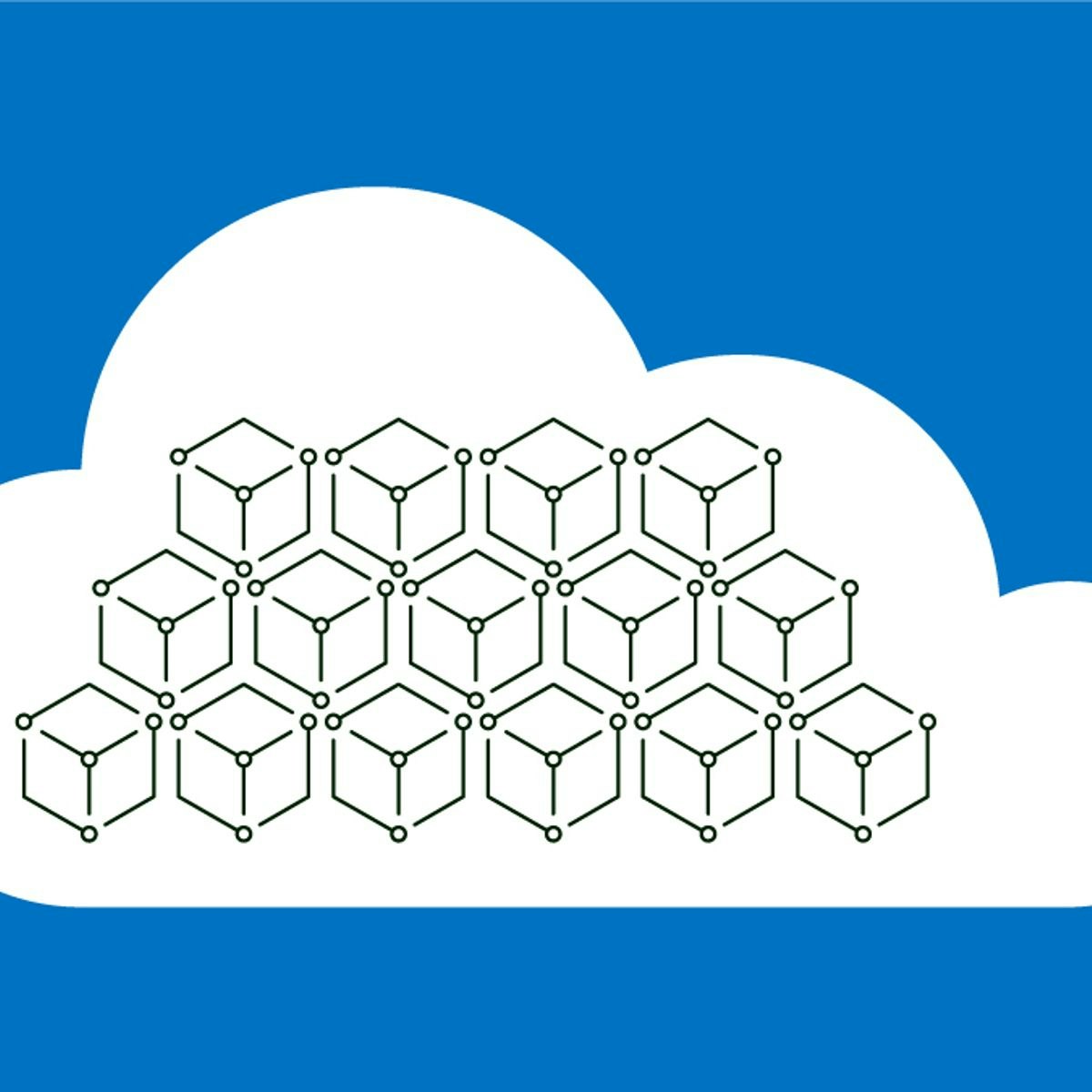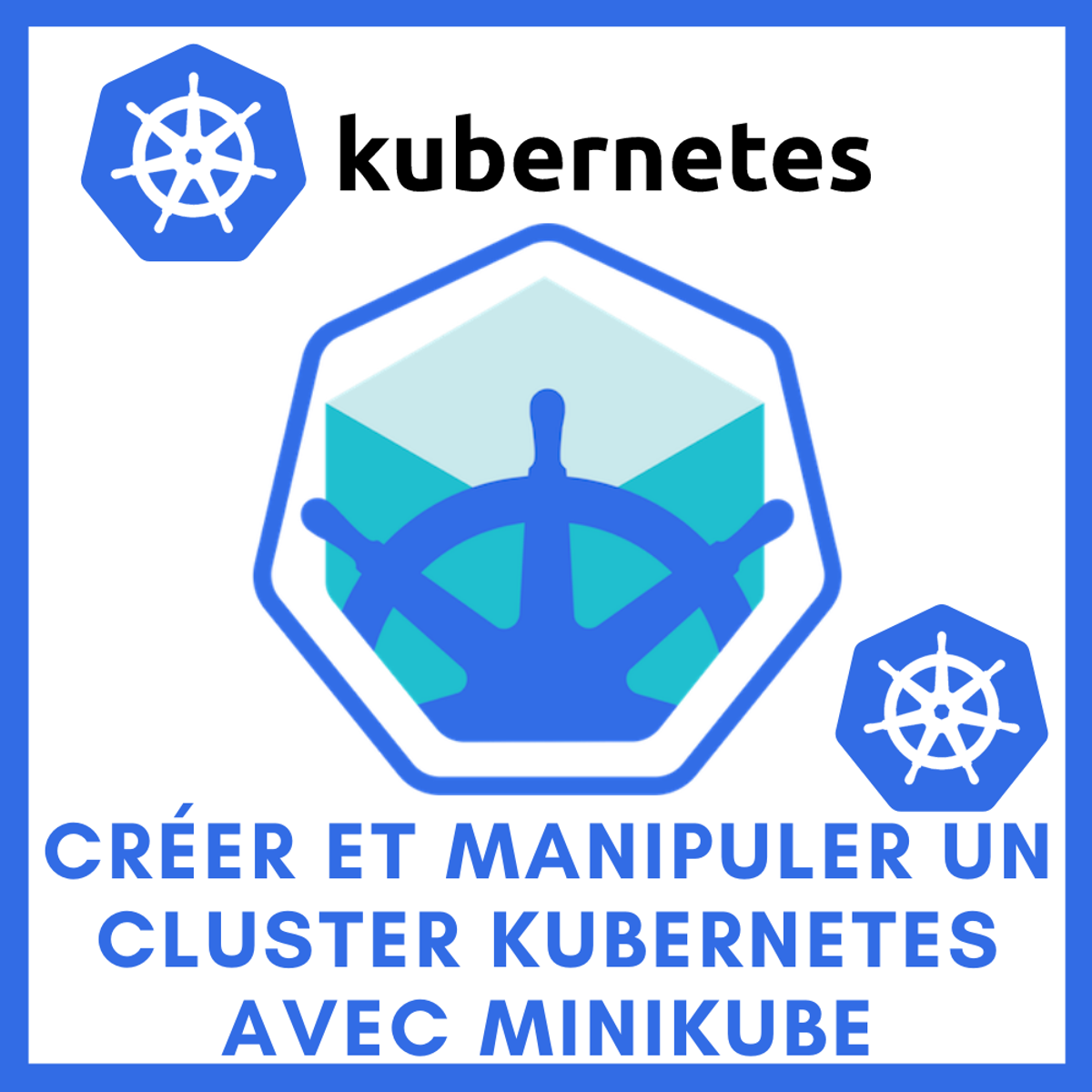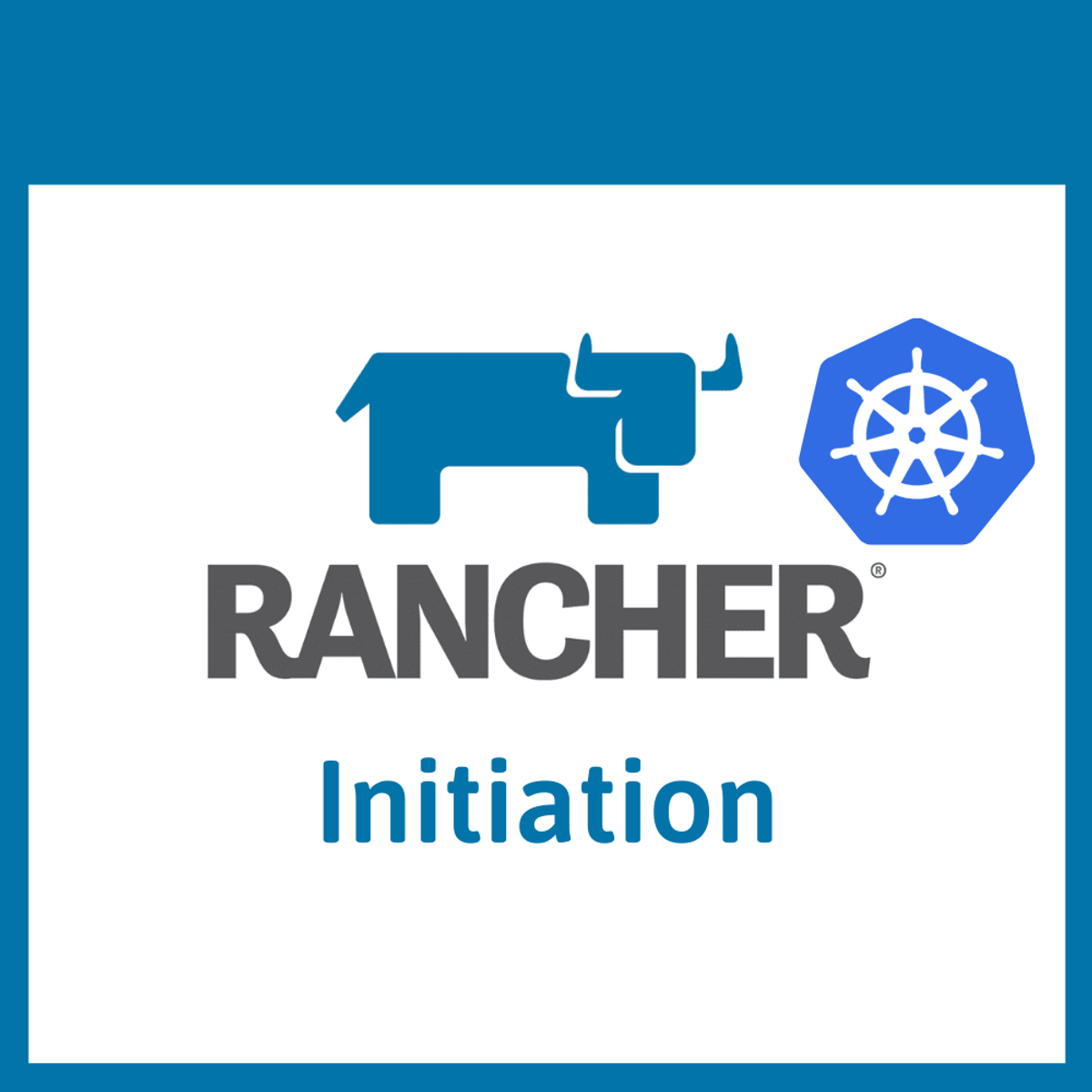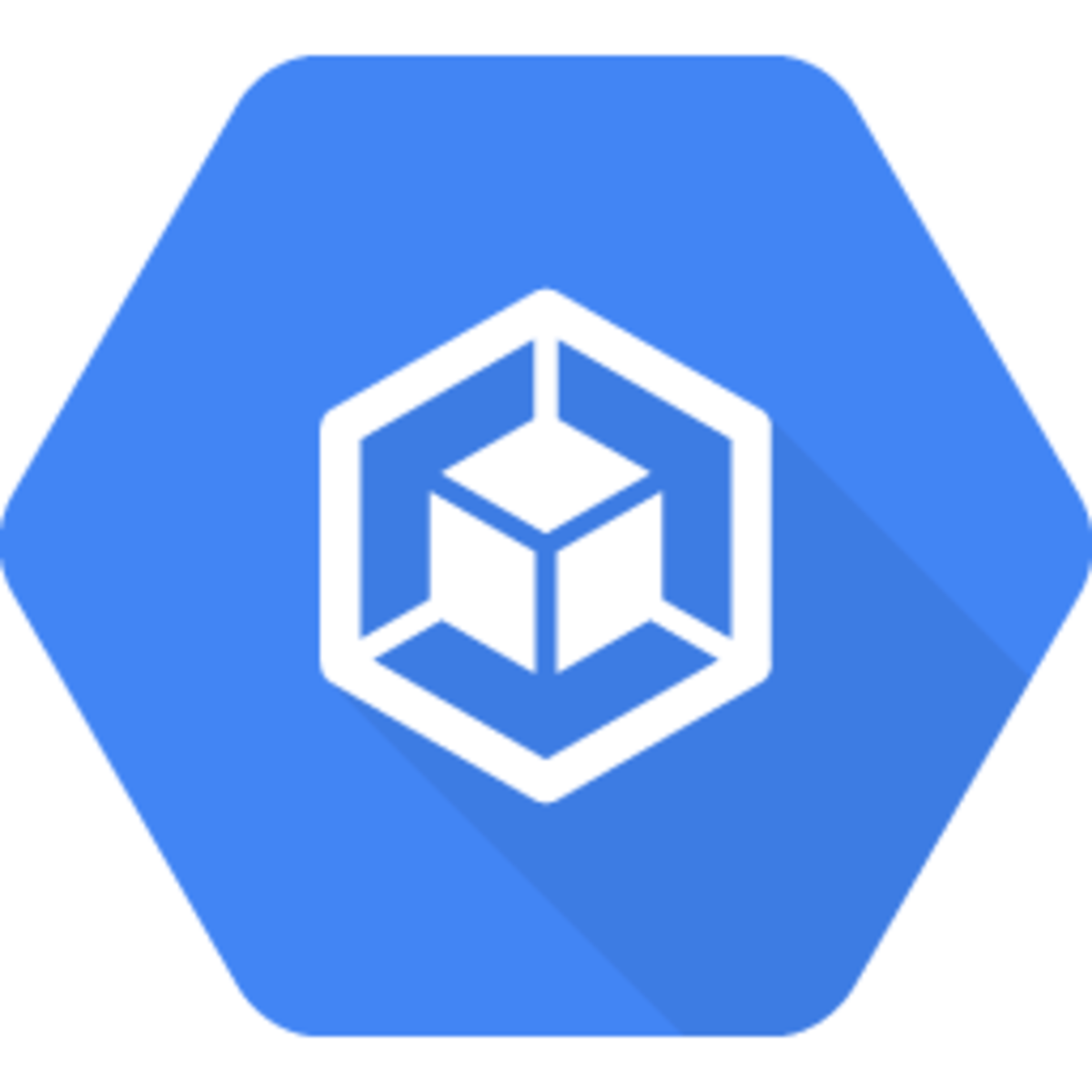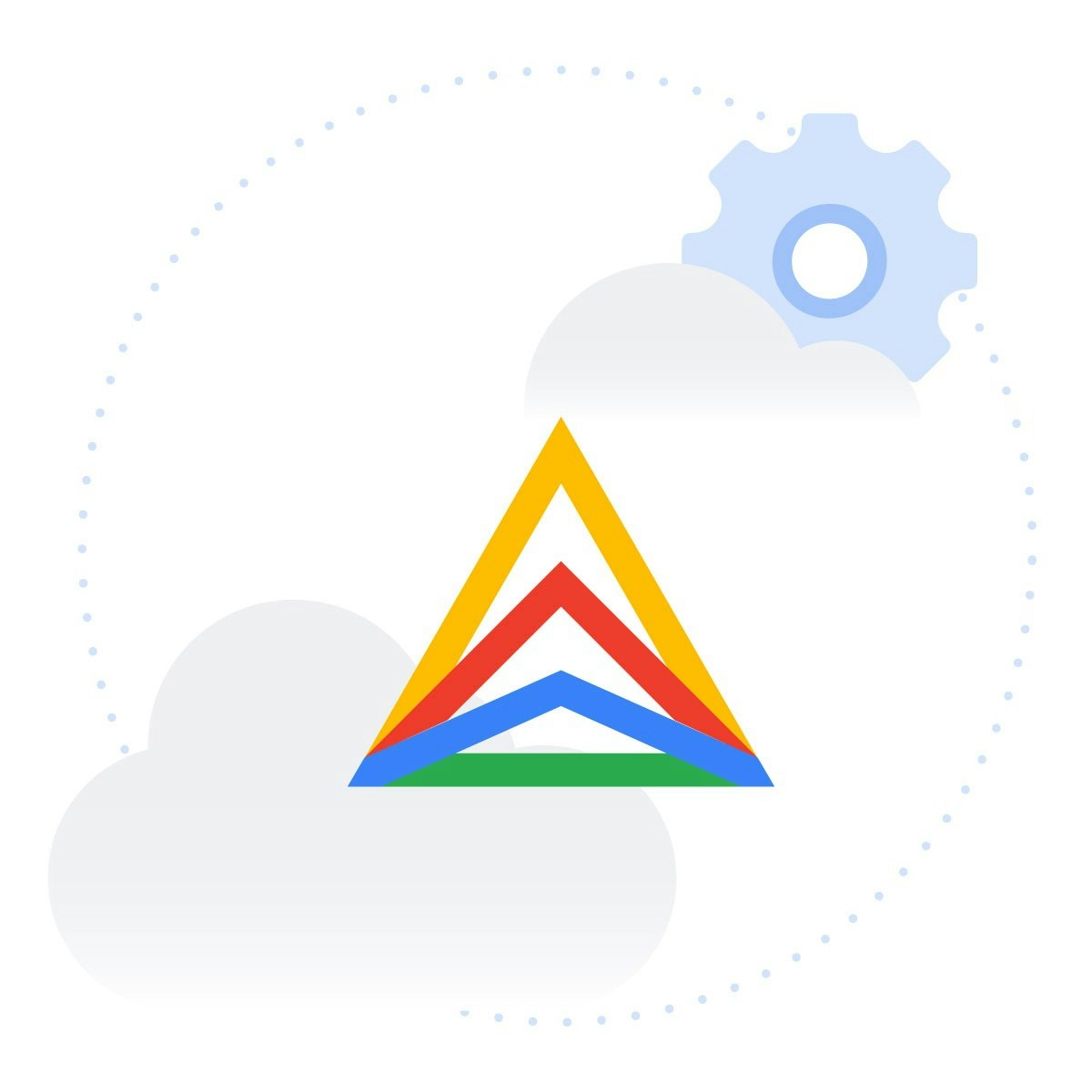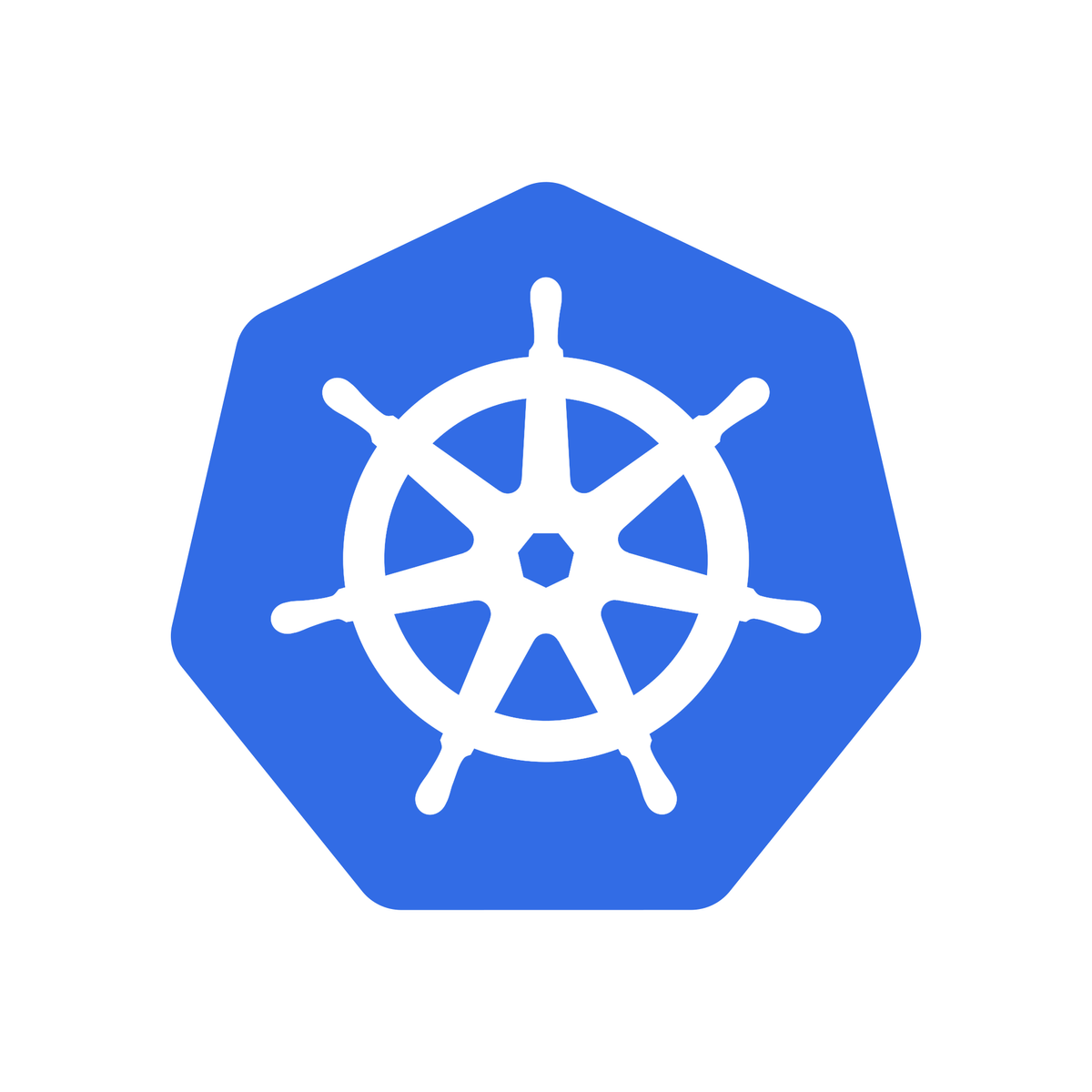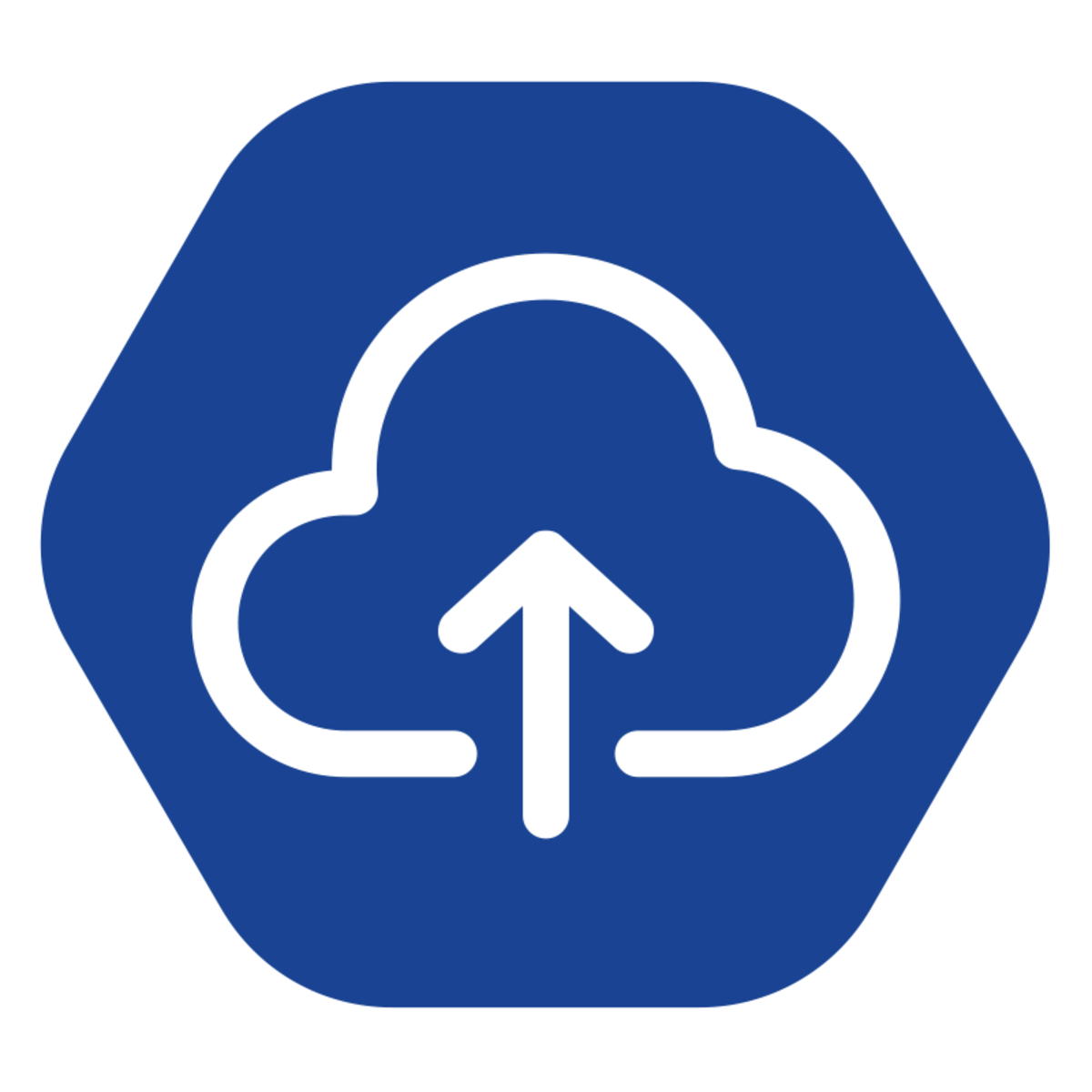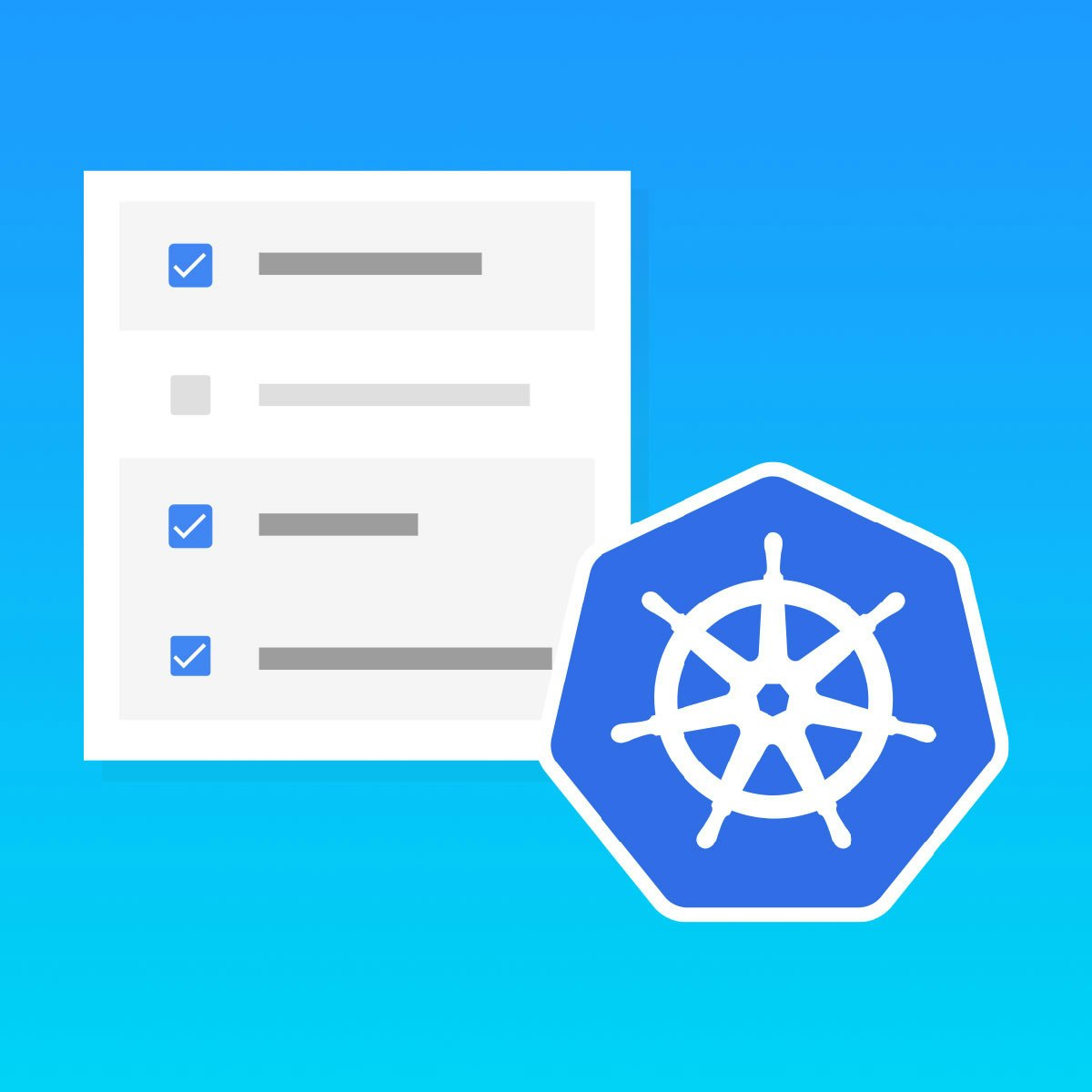Kubernetes
derstanding Kubernetes: A Comprehensive Guide
Kubernetes, often abbreviated as K8s, is an open-source system for automating the deployment, scaling, and management of containerized applications. Think of it as a powerful engine that takes applications packaged in lightweight, portable units called containers and orchestrates them across a cluster of machines. It ensures applications run reliably, scale efficiently according to demand, and can be updated with minimal downtime, making it a cornerstone of modern cloud-native infrastructure.
Working with Kubernetes involves managing complex distributed systems, which can be intellectually stimulating. It offers the chance to design and operate resilient, scalable application platforms that power businesses worldwide. For those fascinated by cloud computing, automation, and system architecture, mastering Kubernetes provides a pathway to impactful roles in shaping how software is delivered and run. It sits at the intersection of software development and operations, offering a dynamic environment for continuous learning and problem-solving.
Introduction to Kubernetes
This section introduces the fundamental concepts behind Kubernetes, its origins, and the problems it aims to solve. It's designed to provide a clear starting point for anyone curious about this technology, regardless of their technical background.
What is Kubernetes and Why Use It?
At its core, Kubernetes is a container orchestration platform. Modern applications are often built as collections of smaller, independent services packaged into containers (using technologies like Docker). Containers bundle an application's code with all the files and libraries it needs to run, ensuring consistency across different environments. However, managing hundreds or thousands of containers manually—deploying them, connecting them, scaling them up or down, handling failures—quickly becomes unmanageable.
Kubernetes automates these tasks. It groups containers into logical units, schedules them onto the available machines (nodes) in a cluster, manages their lifecycle, and ensures they have the resources they need. It handles service discovery (how containers find each other), load balancing (distributing traffic), storage orchestration, automated rollouts and rollbacks of application updates, and self-healing (restarting failed containers). By abstracting away the underlying infrastructure, Kubernetes allows developers and operations teams to focus on building and deploying applications rather than managing individual machines.
The primary purpose is to provide a "platform for automating deployment, scaling, and operations of application containers across clusters of hosts." It provides the tools needed to build and manage resilient, scalable distributed systems efficiently. This automation significantly speeds up software delivery cycles and improves the reliability of applications in production.
For those new to the concept, consider this analogy: Imagine managing a large apartment complex. Manually assigning tenants (applications) to apartments (servers), ensuring utilities (networking, storage) are connected, handling move-ins/outs (deployments/updates), and dealing with maintenance requests (failures) would be chaotic. Kubernetes acts like an incredibly efficient building superintendent and management system. It automatically places tenants, manages resources, handles repairs (restarting failed apps), and scales the complex (adds more servers/resources) as needed, all based on predefined rules and desired states.
From Manual Deployments to Orchestration
The journey to Kubernetes began with the evolution of application deployment practices. Initially, applications were often run directly on physical servers. This led to resource utilization issues, as one application might hog resources while others sat idle on different servers. Configuration inconsistencies between development, testing, and production environments were common, leading to the infamous "it works on my machine" problem.
Virtualization emerged as a solution, allowing multiple virtual machines (VMs) to run on a single physical server, improving resource utilization and providing some level of environment isolation. However, VMs are relatively heavyweight, each carrying a full operating system, which consumes significant resources and slows down startup times.
Containerization, popularized by Docker, offered a lighter-weight alternative. Containers share the host operating system's kernel, making them much smaller and faster than VMs. This enabled developers to package applications and their dependencies consistently. While Docker simplified building and running individual containers, managing applications composed of many interconnected containers at scale remained a significant challenge. This need for sophisticated management of containerized applications paved the way for container orchestrators like Kubernetes.
Kubernetes itself originated from Google, based on their internal cluster management system called Borg. Google open-sourced Kubernetes in 2014, and it was subsequently donated to the newly formed Cloud Native Computing Foundation (CNCF). Its robust feature set, strong community support, and backing by major cloud providers rapidly established it as the de facto standard for container orchestration.
Core Problems Solved by Kubernetes
Kubernetes addresses several critical challenges in deploying and managing modern applications. Firstly, it solves the problem of scaling. Applications often experience fluctuating demand; Kubernetes can automatically scale the number of running container instances up or down based on resource usage (like CPU or memory) or custom metrics, ensuring performance during peak times and cost savings during lulls.
Secondly, it enhances availability and resilience. Kubernetes continuously monitors the health of containers and nodes. If a container crashes, Kubernetes automatically restarts it. If an entire node fails, Kubernetes reschedules the containers running on that node onto healthy nodes, minimizing downtime. This self-healing capability is crucial for maintaining service reliability.
Thirdly, Kubernetes simplifies deployments and updates. It supports various deployment strategies, such as rolling updates (gradually replacing old container versions with new ones) and canary deployments (releasing a new version to a small subset of users first). It allows for automated rollbacks if something goes wrong, reducing the risk associated with releasing new software versions. It also manages application configuration and secrets (like passwords and API keys) securely and efficiently.
Finally, it promotes resource efficiency and portability. By efficiently packing containers onto available nodes based on resource requests and limits, Kubernetes optimizes the utilization of underlying infrastructure. Because it provides a consistent API layer across different environments—whether on-premises data centers or public clouds like AWS, Google Cloud, or Azure—Kubernetes enables applications to be portable, reducing vendor lock-in.
Kubernetes Architecture and Core Components
Understanding the architecture of Kubernetes is essential for effectively using and managing it. This section delves into the key structural elements and components that make up a Kubernetes cluster.
Cluster Architecture: Control Plane and Worker Nodes
A Kubernetes cluster consists of a set of machines, called nodes, that run containerized applications. Every cluster has at least one worker node and one master node (which runs the control plane components). Typically, production clusters have multiple master nodes for high availability and many worker nodes distributed across different physical locations or availability zones for resilience.
The Control Plane is the brain of the cluster. It makes global decisions about the cluster (like scheduling containers), detects and responds to cluster events (e.g., starting up a new container when a deployment's desired replica count is not met), and manages the overall state of the cluster. The control plane components can run on any machine in the cluster, but they are typically run together on dedicated master nodes for isolation and stability.
Worker Nodes are the machines where the actual application containers run. Each worker node has a Kubelet, which is an agent that communicates with the control plane and ensures that containers described in Pod specifications are running and healthy. Worker nodes also run a container runtime (like Docker or containerd) responsible for pulling container images and running the containers. A network proxy (kube-proxy) runs on each node to manage network rules and enable communication between containers and services.
Key Control Plane Components
The Control Plane is composed of several key components that work together to manage the cluster state:
-
kube-apiserver: This is the front end of the control plane. It exposes the Kubernetes API, which is used by users, management devices, command-line interfaces (like
kubectl), and other components to interact with the cluster. It processes and validates API requests and updates the cluster state stored in etcd. - etcd: A consistent and highly-available key-value store used as Kubernetes' backing store for all cluster data. All cluster state information, such as configurations, specifications, and status of resources, is stored here. Having etcd ensures consistency across the cluster.
- kube-scheduler: This component watches for newly created Pods that have no assigned node and selects a node for them to run on. The scheduling decision is based on factors like resource requirements, hardware/software/policy constraints, affinity and anti-affinity specifications, data locality, and inter-workload interference.
- kube-controller-manager: This runs controller processes. Logically, each controller is a separate process, but to reduce complexity, they are all compiled into a single binary and run in a single process. These controllers include the Node Controller (noticing and responding when nodes go down), Replication Controller (maintaining the correct number of pods), Endpoints Controller (populating the Endpoints object, i.e., joining Services & Pods), and Service Account & Token Controllers (creating default accounts and API access tokens for new namespaces).
- cloud-controller-manager (Optional): This embeds cloud-specific control logic. It allows you to link your cluster into your cloud provider's API, separating components that interact with the cloud platform from components that only interact with your cluster. This component is only present in clusters running on a public cloud provider.
Pods, Deployments, and Services Explained
These are fundamental Kubernetes objects used to define and manage applications:
-
Pods: The smallest and simplest deployable unit in Kubernetes. A Pod represents a single instance of a running process in your cluster. Pods encapsulate one or more containers (like Docker containers), storage resources, a unique network IP, and options that govern how the container(s) should run. Containers within the same Pod share the same network namespace and can communicate via
localhost. Pods are generally considered ephemeral; they are created and destroyed dynamically. - Deployments: A higher-level object that manages a set of replica Pods. You describe a desired state in a Deployment object, and the Deployment Controller changes the actual state to the desired state at a controlled rate. Deployments are typically used for stateless applications. They provide declarative updates for Pods, enabling features like rolling updates, rollbacks, scaling, and pausing/resuming deployments.
- Services: An abstraction that defines a logical set of Pods and a policy by which to access them. Because Pods are ephemeral and their IPs can change, Services provide a stable IP address and DNS name entry point. When traffic hits the Service IP, it is load-balanced across the set of Pods matching the Service's selector. This enables reliable communication between different parts of an application (e.g., a frontend accessing a backend) without needing to track individual Pod IPs.
These core objects work together: You define your application containers within Pods, manage the lifecycle and scaling of those Pods using Deployments, and expose your application reliably using Services. This structured approach is key to managing complex applications in Kubernetes.
If you're looking for a hands-on introduction to these concepts, several online courses offer practical labs.
These courses provide practical experience in deploying and managing applications using Kubernetes core objects:
The Role of the Container Runtime
While Kubernetes orchestrates containers, it doesn't actually run them directly. This task falls to the container runtime, which is software responsible for running containers on each worker node. Kubernetes needs a container runtime installed on each node in the cluster to manage the container lifecycle (pulling images, starting/stopping containers).
Kubernetes supports several container runtimes that adhere to the Container Runtime Interface (CRI), a specification defining how the kubelet (the node agent) should interact with the runtime. Common examples include:
- Docker: Initially the most popular runtime, Docker includes a daemon, API, and CLI tools for building and running containers. While Kubernetes originally had built-in Docker support, it now primarily interacts via the CRI standard. Many still use Docker for local development and building images.
- containerd: An industry-standard core container runtime initially developed as part of Docker, now a standalone CNCF project. It focuses purely on the runtime aspects needed by orchestrators like Kubernetes, managing the complete container lifecycle—image transfer and storage, container execution and supervision, low-level storage and network attachments, etc. It's known for its performance and stability and is used by default in many managed Kubernetes services.
- CRI-O: Another lightweight container runtime specifically designed for Kubernetes. It implements the CRI and aims to provide a stable, secure, and performant platform for running containers managed by Kubernetes, without the broader feature set of Docker.
The choice of container runtime typically depends on factors like performance requirements, security considerations, and integration with existing tools. For most users interacting with Kubernetes through kubectl, the specific runtime used on the worker nodes is an implementation detail handled by the cluster administrator or cloud provider.
Understanding containerization is fundamental. These resources delve into Docker and its relationship with Kubernetes:
Formal Education Pathways
While self-directed learning is very common in the Kubernetes space, formal education provides a structured path and deep theoretical understanding that can be highly beneficial, particularly for complex roles in platform engineering or research.
Computer Science Foundations
A strong foundation in core computer science principles is invaluable for mastering Kubernetes and distributed systems. Key areas include:
- Networking: Understanding TCP/IP, DNS, HTTP/HTTPS, load balancing, firewalls, and network security is crucial. Kubernetes networking is complex, involving pod-to-pod communication, service discovery, ingress controllers, and network policies. A solid grasp of networking fundamentals helps in troubleshooting connectivity issues and designing secure cluster networks.
- Operating Systems: Knowledge of Linux fundamentals (processes, memory management, file systems, system calls) is essential, as Kubernetes predominantly runs on Linux nodes. Understanding how containers leverage OS features like namespaces and cgroups is also important.
- Distributed Systems: Kubernetes itself is a distributed system. Concepts like consensus algorithms (e.g., Raft used by etcd), fault tolerance, consistency models, concurrency control, and distributed transactions are highly relevant for understanding how Kubernetes achieves reliability and scalability, and for designing applications that run effectively on it.
These foundational topics are typically covered in undergraduate computer science programs. For those transitioning careers, online courses focusing specifically on these areas can bridge knowledge gaps.
These courses cover essential computer science topics relevant to Kubernetes:
Graduate Programs and Research
For those interested in pushing the boundaries of container orchestration, cloud-native computing, or distributed systems, pursuing graduate studies (Master's or Ph.D.) can be a rewarding path. Many universities have research groups focusing on areas directly related to or benefiting from Kubernetes:
- Cloud Computing: Research on resource management, scheduling algorithms, serverless computing, multi-cloud architectures, and cloud security often involves Kubernetes as a platform or object of study.
- Distributed Systems: Topics like performance optimization, fault tolerance mechanisms, distributed storage, consistency guarantees, and large-scale system management are central to both Kubernetes and academic research.
- Networking: Research into software-defined networking (SDN), network function virtualization (NFV), service meshes, and network security in containerized environments is an active area.
- Operating Systems: Research on kernel optimizations for containers, lightweight virtualization, and OS-level security mechanisms relates directly to the foundations Kubernetes builds upon.
Engaging in research often involves building prototypes, running large-scale experiments, and contributing to the theoretical understanding of these complex systems. Advanced degrees can open doors to research positions in industry labs or academia, as well as highly specialized engineering roles.
Lab-Based Learning and Academic Conferences
Hands-on experience is critical. Formal education programs often incorporate lab work where students can experiment with deploying applications, configuring clusters, and exploring different Kubernetes features in a controlled environment. University labs might provide access to cloud credits or on-premises clusters for experimentation.
Attending academic and industry conferences is another valuable aspect of formal learning. Events like KubeCon + CloudNativeCon (organized by the CNCF), USENIX ATC, ACM SOSP/OSDI, and others feature presentations on the latest research, industry trends, and best practices related to Kubernetes and cloud-native technologies. These conferences offer opportunities to learn from experts, network with peers, and stay abreast of the rapidly evolving ecosystem.
Many conference talks are recorded and made available online, providing a valuable resource even for those unable to attend in person. Engaging with the research community through papers and presentations deepens understanding beyond practical skills.
Self-Directed Learning Strategies
The fast-paced nature of Kubernetes and the broader cloud-native ecosystem means continuous learning is essential. Fortunately, a wealth of resources exists for self-directed study, catering to various learning styles and goals.
Building Home Labs and Experimentation
One of the most effective ways to learn Kubernetes is by doing. Setting up a local Kubernetes cluster allows for safe experimentation without the cost of cloud resources. Tools like:
-
Minikube: Creates a single-node Kubernetes cluster inside a VM on your local machine. It's excellent for learning basic concepts and trying out
kubectlcommands. - Kind (Kubernetes in Docker): Runs Kubernetes cluster nodes as Docker containers. It's faster to start than Minikube and good for testing multi-node cluster features locally.
- K3s: A lightweight, certified Kubernetes distribution designed for edge computing, IoT, and resource-constrained environments. It's easy to install and uses fewer resources, making it suitable for local development.
Using these tools, you can practice deploying applications, configuring networking, managing storage, exploring security settings, and even simulating failures. Building small projects or attempting to replicate real-world scenarios in your local lab solidifies understanding and builds practical skills.
These courses offer hands-on experience, often using local cluster tools:
Certification Paths
Certifications can validate your Kubernetes skills and enhance your resume. The Cloud Native Computing Foundation (CNCF) offers several widely recognized certifications:
- Certified Kubernetes Administrator (CKA): Focuses on the skills required to operate and manage production-grade Kubernetes clusters. It covers cluster architecture, installation, configuration, networking, storage, security, and troubleshooting.
- Certified Kubernetes Application Developer (CKAD): Targets engineers who build, deploy, and configure cloud-native applications on Kubernetes. It emphasizes understanding core concepts, multi-container pods, application lifecycle management, configuration, security, and observability.
- Certified Kubernetes Security Specialist (CKS): An advanced certification requiring CKA, focusing on securing container-based applications and Kubernetes platforms during build, deployment, and runtime.
- Kubernetes and Cloud Native Associate (KCNA): An entry-level certification covering foundational knowledge of Kubernetes and the wider cloud-native ecosystem.
Preparing for these exams involves both theoretical study and extensive hands-on practice, as the CKA, CKAD, and CKS exams are performance-based, requiring you to solve problems in a live Kubernetes environment. Many online courses and practice exams are available to help prepare.
These courses are specifically designed to help prepare for Kubernetes certifications:
Consider these highly-regarded books for deeper understanding and exam preparation:
Open Source Contributions and Community Resources
Engaging with the Kubernetes open-source community is an excellent way to learn and contribute. Kubernetes itself, along with numerous projects in the CNCF ecosystem (like Prometheus, Envoy, Istio, Helm), welcomes contributions.
Ways to get involved include:
- Documentation: Improving documentation is a great starting point. Identify areas that are unclear or missing, and submit pull requests with improvements.
- Issue Triage: Help categorize and reproduce bug reports filed by users.
- Code Contributions: Start with "good first issues" identified in project repositories to get familiar with the codebase and contribution process.
- Special Interest Groups (SIGs): Kubernetes development is organized into SIGs focused on specific areas (e.g., SIG-Network, SIG-Storage, SIG-Security). Joining SIG meetings and mailing lists provides insights into ongoing development and challenges.
Beyond direct contributions, the community offers vast resources:
- Official Kubernetes Documentation (kubernetes.io/docs): Comprehensive guides, tutorials, and API references.
- Kubernetes Blog (kubernetes.io/blog): Updates on new features, community initiatives, and case studies.
- Online Forums and Chat: Platforms like Stack Overflow, Reddit (r/kubernetes), and the Kubernetes Slack workspace offer places to ask questions and interact with other users and developers.
- Local Meetups and Events: Many cities have Kubernetes or Cloud Native meetups, providing opportunities for local networking and learning.
Leveraging these community resources accelerates learning and provides valuable connections within the ecosystem. OpenCourser's Learner's Guide also offers tips on structuring self-learning paths and staying motivated.
Career Progression in Kubernetes Ecosystems
Expertise in Kubernetes opens doors to a variety of roles in the tech industry. Demand for professionals skilled in container orchestration remains strong as companies increasingly adopt cloud-native architectures. Understanding the typical career paths can help you navigate your journey.
Entry-Level and Foundational Roles
For those starting, roles often blend Kubernetes skills with broader system administration or development knowledge:
- DevOps Engineer: Focuses on automating software delivery pipelines (CI/CD), infrastructure provisioning (Infrastructure as Code), and managing cloud environments. Kubernetes is a core tool for deployment and orchestration in modern DevOps practices.
- Site Reliability Engineer (SRE): Concentrates on the availability, performance, and reliability of production systems. SREs use Kubernetes to build self-healing systems, implement robust monitoring and alerting, manage capacity, and automate operational tasks.
- Cloud Engineer: Works on designing, implementing, and managing infrastructure on cloud platforms (AWS, Azure, GCP). Often involves setting up and managing managed Kubernetes services (EKS, AKS, GKE) and integrating them with other cloud services.
- Junior Software Engineer (with DevOps focus): Increasingly, software engineers are expected to understand how their applications are deployed and run. Familiarity with Docker and Kubernetes helps in building container-friendly applications and participating in the deployment process.
These roles often require a blend of coding/scripting skills (Python, Go, Bash), Linux administration, networking fundamentals, and cloud platform knowledge, alongside Kubernetes proficiency. Building projects, obtaining certifications (like KCNA or CKAD), and demonstrating hands-on experience are key entry points.
Exploring related career paths can provide context:
Mid-Career and Specialization Paths
With experience, professionals often deepen their Kubernetes expertise or specialize in related areas:
- Platform Engineer: Designs, builds, and maintains the internal platforms (often Kubernetes-based) that development teams use to deploy and run their applications. This involves deep knowledge of Kubernetes internals, networking, security, and automation to provide a reliable and efficient developer experience.
- Cloud Architect: Designs overall cloud solutions, often incorporating Kubernetes as a central component. Requires a broad understanding of cloud services, networking, security, cost optimization, and business requirements.
- Senior DevOps/SRE Engineer: Takes on more complex automation challenges, leads reliability initiatives, mentors junior engineers, and contributes to architectural decisions regarding the platform and tooling.
- Kubernetes Consultant: Works with various organizations to help them adopt, migrate to, or optimize their Kubernetes deployments. Requires strong technical skills combined with excellent communication and problem-solving abilities.
Advancement typically involves demonstrating deep technical expertise, leadership capabilities, and a strong understanding of how Kubernetes fits into the broader business and technology strategy. Continuous learning and staying updated with the rapidly evolving ecosystem are crucial.
Consider these books for deeper architectural insights:
Emerging Roles and Future Directions
The cloud-native landscape is constantly evolving, creating new specialized roles:
- GitOps Engineer: Focuses on implementing GitOps principles, where Git repositories serve as the single source of truth for both application and infrastructure configuration. Tools like FluxCD and Argo CD are used to automate deployments based on changes in Git.
- Service Mesh Specialist: Specializes in deploying and managing service meshes like Istio or Linkerd, which provide advanced capabilities for traffic management, observability, and security between microservices running on Kubernetes.
- Kubernetes Security Engineer: Focuses specifically on securing Kubernetes clusters and containerized workloads, implementing security policies, managing secrets, scanning for vulnerabilities, and ensuring compliance.
- Edge Computing Specialist: Works on deploying and managing Kubernetes clusters (often lightweight distributions like K3s or KubeEdge) in edge locations, dealing with challenges like intermittent connectivity and resource constraints.
These roles often require staying at the forefront of new technologies and practices within the CNCF ecosystem. As areas like WebAssembly (Wasm) on Kubernetes, AI/ML workload orchestration, and policy-driven automation mature, further specializations are likely to emerge.
Explore related technologies to understand these emerging trends:
Salary Expectations and Market Demand
Skills in Kubernetes, DevOps, and cloud computing are highly sought after in the tech industry. According to the CNCF's 2023 Cloud Native Operations Survey, Kubernetes usage continues to grow, indicating sustained demand for related skills. Roles requiring Kubernetes expertise generally command competitive salaries, often exceeding averages for general software engineering or system administration positions.
Salary benchmarks vary significantly based on location, years of experience, specific role responsibilities, company size, and industry. Resources like the U.S. Bureau of Labor Statistics Occupational Outlook Handbook (while not specific to Kubernetes, provides data for related roles like Software Developers and Network/Computer Systems Administrators) and industry salary surveys (e.g., from Stack Overflow, Dice, or specialized recruitment firms like Robert Half) can provide general guidance. Entry-level positions might start in the high five figures to low six figures (USD), while senior engineers, architects, and specialists can command significantly higher salaries, often well into the six figures.
While the field is competitive, the ongoing migration to cloud-native architectures suggests a positive long-term outlook for professionals with deep Kubernetes skills. Continuous skill development, obtaining relevant certifications, and gaining practical experience are key to maximizing career opportunities and earning potential in this domain. It's a challenging path, but the investment in learning Kubernetes often yields significant career rewards.
Kubernetes in the Modern Tech Ecosystem
Kubernetes doesn't exist in isolation; it's a key part of a larger technological landscape. Understanding its context, adoption patterns, and integrations is important for appreciating its impact.
Adoption Trends and Industry Impact
Kubernetes adoption has grown rapidly across industries, from tech startups to large enterprises in finance, retail, healthcare, and manufacturing. Its ability to standardize deployments, improve resource utilization, and accelerate software delivery makes it attractive for organizations undergoing digital transformation. Managed Kubernetes offerings from major cloud providers (Amazon EKS, Google GKE, Azure AKS) have further lowered the barrier to entry and accelerated adoption.
Companies use Kubernetes to run a wide variety of workloads, including web applications, microservices, data processing pipelines, machine learning models, and even stateful applications like databases (though this requires careful configuration). The Cloud Native Computing Foundation (CNCF) plays a central role in fostering this ecosystem, hosting Kubernetes and many related projects.
Industry reports consistently highlight the prevalence of containerization and orchestration. For instance, reports from firms like Gartner often analyze trends in container management and cloud-native platforms, underscoring Kubernetes' dominant position. This widespread adoption signifies its strategic importance in modern IT infrastructure.
The CNCF Landscape and Commercial Distributions
Kubernetes is the flagship project of the CNCF, but the foundation hosts a vast landscape of other open-source projects designed to complement Kubernetes and build cloud-native applications. These include projects for monitoring (Prometheus), service mesh (Istio, Linkerd), tracing (Jaeger), container registry (Harbor), storage (Rook), networking (Cilium), and much more. Understanding how these projects integrate with Kubernetes is often necessary for building complete solutions.
While Kubernetes itself is open source, several companies offer commercial distributions or platforms built around it. These often provide enterprise support, additional management tools, security features, and integrated solutions. Examples include Red Hat OpenShift, VMware Tanzu, Rancher (by SUSE), and Mirantis Kubernetes Engine. These commercial offerings cater to organizations seeking supported, integrated platforms, often simplifying adoption and management, especially in complex enterprise environments.
These courses explore related CNCF projects and commercial platforms:
Integration with AI/ML Workflows
Kubernetes is increasingly becoming the platform of choice for orchestrating complex Artificial Intelligence (AI) and Machine Learning (ML) workflows. Training ML models often requires significant computational resources and involves multiple steps, while deploying models for inference needs scalability and reliability.
Projects like Kubeflow aim to make deploying ML workflows on Kubernetes simple, portable, and scalable. Kubeflow provides components for various stages of the ML lifecycle, including data preparation, model training (leveraging frameworks like TensorFlow, PyTorch), hyperparameter tuning, model serving, and pipeline orchestration. Kubernetes' ability to manage GPUs, scale resources dynamically, and handle complex dependencies makes it well-suited for these demanding workloads.
Using Kubernetes allows data scientists and ML engineers to leverage the same operational tooling and infrastructure used for other applications, streamlining MLOps (Machine Learning Operations) practices. This integration simplifies the path from model development to production deployment.
These courses touch upon using Kubernetes for specialized workloads like AI/ML or data engineering:
Impact on Cloud Spending and Optimization
Kubernetes can have a significant impact on cloud infrastructure costs, both positive and negative if not managed carefully. On the one hand, its efficient bin-packing of containers onto nodes can improve resource utilization compared to traditional VM-based deployments, potentially reducing the number of required instances. Autoscaling capabilities ensure that resources scale with demand, preventing over-provisioning during off-peak hours.
On the other hand, the complexity of Kubernetes can lead to hidden costs. Misconfigured resource requests and limits can lead to inefficient packing or node underutilization. The overhead of the control plane itself consumes resources. Managing multiple clusters or complex networking setups can add operational costs. Furthermore, the ease of scaling can sometimes lead to unchecked resource consumption if not properly monitored.
Effective cost optimization in Kubernetes involves careful capacity planning, setting appropriate resource requests and limits for applications, using cluster autoscalers wisely, leveraging spot instances where appropriate, implementing monitoring tools to track resource usage, and adopting FinOps (Financial Operations) practices to gain visibility into Kubernetes-related spending. Tools specifically designed for Kubernetes cost monitoring and optimization are becoming increasingly common.
This course focuses specifically on cost optimization within a Kubernetes environment:
Operational Challenges and Solutions
While Kubernetes offers powerful capabilities, running it reliably in production involves overcoming several operational challenges. Understanding these challenges and common solutions is crucial for successful implementation.
Managing State in Distributed Systems
Kubernetes was initially designed primarily for stateless applications, which are easier to scale and manage. However, most real-world applications require state (e.g., databases, message queues). Managing stateful applications in Kubernetes presents unique challenges.
Pods are ephemeral, meaning they can be terminated and replaced at any time. This requires persistent storage solutions that outlive individual Pods. Kubernetes provides primitives like PersistentVolumes (PVs) and PersistentVolumeClaims (PVCs) to abstract storage details, and StatefulSets to manage pods that require stable network identifiers and persistent storage. However, configuring and managing distributed databases or stateful systems within Kubernetes requires careful planning around data replication, backups, failover, and consistency.
Solutions often involve using cloud provider storage services, dedicated distributed storage systems designed for Kubernetes (like Ceph via Rook, or Longhorn), or specialized Kubernetes Operators that encode operational knowledge for managing specific stateful applications (e.g., database operators like Patroni for PostgreSQL or operators for Kafka).
These courses touch upon storage and stateful applications:
Security Considerations
Securing a Kubernetes cluster is a multi-faceted challenge, often referred to as the "4 Cs" of Cloud Native Security: Cloud/Corporate Data Center, Cluster, Container, and Code.
- Cloud/Data Center Security: Protecting the underlying infrastructure (physical servers, networks, cloud provider accounts).
- Cluster Security: Securing the Kubernetes control plane components (API server, etcd), configuring authentication and authorization (RBAC - Role-Based Access Control), managing worker node security, and implementing Network Policies to restrict traffic flow between pods.
- Container Security: Securing the container images themselves (scanning for vulnerabilities, using minimal base images, avoiding running as root) and configuring container runtime security settings.
- Code Security: Ensuring the application code itself is secure, handling dependencies safely, and implementing secure coding practices.
Key Kubernetes security features include RBAC for fine-grained access control, Network Policies for network segmentation, Secrets management for sensitive data, Security Contexts for defining pod/container privileges, and Pod Security Admission/Policies for enforcing security standards at deployment time. Integrating tools for vulnerability scanning, runtime security monitoring, and policy enforcement (like OPA/Gatekeeper or Kyverno) is also common practice.
These courses delve into security aspects:
This book provides insights into infrastructure security:
Multi-Cluster and Multi-Cloud Management
As organizations scale their Kubernetes usage, they often end up managing multiple clusters. This might be for reasons like environment separation (dev, staging, prod), geographical distribution, fault isolation, or regulatory compliance. Managing applications and policies consistently across multiple clusters introduces significant complexity.
Challenges include centralized monitoring and logging, consistent security policy enforcement, managing user access across clusters, application deployment and lifecycle management, and enabling cross-cluster communication or failover. Solutions often involve using specialized multi-cluster management platforms (like Google Anthos, Red Hat Advanced Cluster Management, Rancher, or open-source tools like KubeFed or Cluster API) or adopting GitOps practices with tools that can target multiple clusters.
Multi-cloud scenarios, where clusters run across different public cloud providers or combine public cloud with on-premises infrastructure (hybrid cloud), add further complexity related to networking, storage compatibility, identity management, and avoiding vendor lock-in. Kubernetes' abstraction layer helps, but careful architecture and tooling choices are required.
These courses address multi-cluster and hybrid scenarios:
Observability and Troubleshooting
Understanding what's happening inside a Kubernetes cluster and diagnosing problems requires robust observability practices, typically revolving around three pillars: metrics, logs, and traces.
- Metrics: Numerical data representing the state of the system over time (e.g., CPU usage, memory consumption, request latency, error rates). Tools like Prometheus are commonly used to collect metrics from cluster components and applications, often visualized with Grafana.
- Logging: Recording events that occur within applications and infrastructure components. Centralized logging systems (like Elasticsearch/Fluentd/Kibana - EFK stack, or Loki/Promtail/Grafana - PLG stack) aggregate logs from all containers and nodes, making them searchable and analyzable.
- Tracing: Tracking requests as they propagate through different services in a distributed system. Tools like Jaeger or Zipkin help visualize request flows and identify bottlenecks or points of failure in microservice architectures.
Troubleshooting in Kubernetes often involves using kubectl commands to inspect the state of Pods, Deployments, Services, Nodes, and Events (kubectl describe, kubectl logs, kubectl get events). Analyzing metrics and logs, correlating events across different components, and understanding the interactions between Kubernetes objects are key skills for effective troubleshooting in this complex environment.
These courses focus on observability tools and techniques:
Kubernetes and Cloud-Native Transformation
Kubernetes is more than just a technology; it's an enabler of broader organizational and strategic shifts towards cloud-native practices, impacting business agility, infrastructure strategy, and even sustainability.
Business Impact of Containerization and Orchestration
Adopting Kubernetes and containerization can yield significant business benefits. By standardizing application packaging and deployment, it enables faster release cycles, allowing businesses to deliver new features and respond to market changes more quickly. Automation reduces manual effort and the potential for human error, leading to more reliable services.
Improved resource utilization and autoscaling can lead to infrastructure cost savings. The portability offered by Kubernetes reduces vendor lock-in and provides flexibility in choosing deployment environments. Furthermore, the robust ecosystem around Kubernetes provides access to a wide range of tools and services, fostering innovation.
However, achieving these benefits requires more than just adopting the technology. It often necessitates changes in team structures (e.g., adopting DevOps or SRE models), development practices (e.g., building microservices), and organizational culture to embrace automation and continuous delivery. The transition involves investment in training, tooling, and potentially re-architecting applications.
Hybrid and Multi-Cloud Strategies
Kubernetes is a key enabler for hybrid cloud (combining private and public clouds) and multi-cloud (using multiple public clouds) strategies. It provides a consistent platform abstraction layer across different underlying infrastructures.
Organizations might adopt hybrid/multi-cloud for reasons like leveraging specific services from different providers, improving resilience by avoiding single-provider dependency, meeting data sovereignty requirements, or optimizing costs. Kubernetes allows teams to build and deploy applications using a consistent workflow, regardless of where the cluster is running. Tools like Google Anthos, Azure Arc, or Red Hat OpenShift are specifically designed to manage Kubernetes deployments across diverse environments, simplifying the operational complexity of hybrid and multi-cloud setups.
While Kubernetes facilitates portability, achieving seamless hybrid/multi-cloud operation still requires careful consideration of networking connectivity between environments, data synchronization, identity management, security policies, and managing potential differences in managed Kubernetes service features or underlying infrastructure performance.
Explore related topics:
Serverless Integration
Serverless computing aims to abstract away infrastructure management entirely, allowing developers to focus solely on code that runs in response to events. While seemingly different from Kubernetes (which manages servers/nodes), the two paradigms are increasingly converging.
Platforms like Knative (which builds on Kubernetes) provide components for building, deploying, and managing modern serverless workloads. Knative offers features like scale-to-zero (where applications consume no resources when idle), event-driven activation, and sophisticated traffic management for blue/green or canary deployments. Other frameworks like OpenFaaS or Kubeless also allow running serverless functions directly on Kubernetes clusters.
This integration, sometimes called "Functions as a Service (FaaS) on Kubernetes," allows organizations to leverage their existing Kubernetes investment and operational expertise while gaining the benefits of serverless for specific workloads, such as event-driven processing or APIs with highly variable traffic. It offers more control and portability compared to traditional cloud provider serverless offerings.
This course introduces serverless concepts on Kubernetes:
Sustainability Considerations
As cloud computing's energy consumption grows, sustainability is becoming an increasingly important consideration in IT infrastructure decisions. Kubernetes can play a role in improving energy efficiency, but its impact depends heavily on how it's configured and used.
Efficient resource packing by the Kubernetes scheduler can increase server utilization, potentially reducing the total number of physical servers needed to run a given workload compared to less optimized approaches. Autoscaling capabilities allow resources to be scaled down during periods of low demand, saving energy. However, the complexity of Kubernetes can also lead to inefficiencies if not managed well, such as running idle clusters or poorly configured resource requests leading to fragmentation and underutilization.
Choosing energy-efficient hardware, optimizing application performance, implementing effective autoscaling policies, shutting down non-production environments when not in use, and selecting cloud providers or data centers committed to renewable energy are all strategies that complement Kubernetes usage for better sustainability. The Cloud Native Computing Foundation has initiatives focused on environmental sustainability in cloud-native technologies, reflecting growing awareness in the community.
Future Trends and Emerging Patterns
The Kubernetes and cloud-native ecosystem is constantly evolving. Staying aware of emerging trends and patterns is important for future-proofing skills and strategies.
Edge Computing Implementations
Edge computing involves processing data closer to where it's generated, rather than sending it all back to a centralized cloud or data center. This is crucial for applications requiring low latency (like industrial automation or autonomous vehicles), handling large data volumes locally, or operating in environments with limited connectivity.
Kubernetes is being adapted for the edge using lightweight distributions like K3s, KubeEdge, and MicroK8s. These distributions are optimized for resource-constrained devices and can manage containerized applications deployed across thousands of edge locations. Challenges include managing distributed clusters at scale, handling intermittent network connectivity, securing edge devices, and deploying updates reliably. Kubernetes provides a consistent platform for managing both cloud and edge workloads.
This course explores Kubernetes at the edge:
WebAssembly (Wasm) Integration
WebAssembly (Wasm) is a binary instruction format designed as a portable compilation target for programming languages, enabling deployment on the web for client and server applications. There's growing interest in running Wasm workloads directly within Kubernetes, alongside or even instead of traditional containers.
Wasm offers potential benefits like faster startup times, smaller binary sizes, and a more secure sandboxing model compared to traditional containers. Projects are emerging to integrate Wasm runtimes (like WasmEdge or Wasmer) with Kubernetes via the Container Runtime Interface (CRI) or through custom schedulers. This could enable new types of lightweight, secure, and portable applications, particularly for serverless functions, edge computing, and plugin systems.
While still an emerging area, the integration of Wasm represents a potential evolution in how applications are packaged and run in cloud-native environments, offering an alternative to traditional Docker containers for certain use cases.
Policy-Driven Automation
As Kubernetes environments grow in complexity, managing security, compliance, and operational best practices manually becomes difficult. Policy-as-Code tools allow administrators to define policies declaratively and automate their enforcement across the cluster.
Open Policy Agent (OPA) is a popular open-source, general-purpose policy engine that integrates with Kubernetes via Gatekeeper. Kyverno is another policy engine built specifically for Kubernetes. These tools allow administrators to write policies that can, for example, enforce security contexts, restrict image registries, require resource labels, validate configurations, or prevent risky operations. Policies are automatically enforced at admission time (when resources are created or updated) or audited periodically.
This trend towards policy-driven automation helps ensure consistency, security, and compliance at scale, reducing manual overhead and the risk of misconfiguration in complex Kubernetes environments.
Preparing for the Future
The field of cloud-native computing is dynamic. Beyond specific trends like edge, Wasm, and policy automation, continuous learning is paramount. Keeping up with updates from the CNCF, following key projects on GitHub, participating in community discussions, and experimenting with new tools and techniques are essential practices.
The fundamental principles of distributed systems, automation, and infrastructure management that underpin Kubernetes are likely to remain relevant even as specific technologies evolve. Building a strong foundation in these areas, combined with adaptability and a willingness to learn, is the best preparation for a long-term career in the Kubernetes ecosystem.
Exploring the broader field of cloud computing is always beneficial:
Frequently Asked Questions (Career Focus)
Navigating a career related to Kubernetes can bring up many questions, especially for those new to the field or considering a transition. Here are answers to some common queries.
Is Kubernetes expertise still in demand given AI advancements?
Yes, Kubernetes expertise remains highly in demand. While AI is transforming many areas, it often relies on robust, scalable infrastructure to run effectively. Kubernetes is frequently the platform of choice for deploying and managing AI/ML workloads (as discussed with Kubeflow). AI tools might automate certain DevOps tasks, but the need for engineers who understand how to design, build, secure, and operate the underlying Kubernetes platform persists. In many ways, AI advancements increase the need for sophisticated infrastructure management, making Kubernetes skills even more relevant.
Can I transition into Kubernetes roles without cloud certification?
Yes, it's possible, although certifications can certainly help. Hands-on experience, a strong portfolio of projects (even personal ones built in a home lab), and contributions to open source can often be more compelling to employers than certifications alone. Demonstrating practical skills in deploying applications, managing clusters, troubleshooting issues, and understanding core concepts is key. Certifications like CKA or CKAD can validate these skills, especially for those without extensive professional experience in the field, but they are not always strict prerequisites. Focus on building demonstrable skills and experience first.
Many find online courses invaluable for building foundational and practical skills:
What soft skills complement Kubernetes technical skills?
Technical skills are crucial, but soft skills are equally important for success, especially in collaborative environments like DevOps and SRE teams.
- Communication: Clearly explaining complex technical concepts to different audiences (developers, managers, other ops teams) is vital. Documenting procedures and architectural decisions is also essential.
- Collaboration: Working effectively within a team, sharing knowledge, participating in code reviews, and contributing to incident response require strong teamwork skills.
- Problem-Solving: Troubleshooting issues in complex distributed systems often requires systematic thinking, persistence, and creativity.
- Learning Agility: The cloud-native ecosystem changes rapidly. A willingness and ability to continuously learn new tools, techniques, and concepts is critical.
- Attention to Detail: Small configuration errors in Kubernetes can have significant impacts. Careful attention to detail is necessary when managing infrastructure and deployments.
How does Kubernetes experience translate to startup vs enterprise roles?
The nature of Kubernetes roles can differ between startups and large enterprises.
- Startups: Roles might be broader, requiring engineers to wear multiple hats (e.g., handling infrastructure, CI/CD, security, and application support). There might be more opportunity to build systems from scratch and influence technology choices, but often with fewer resources and established processes. Speed and adaptability are often prioritized.
- Enterprises: Roles tend to be more specialized (e.g., dedicated platform engineer, security specialist, network engineer). You'll likely work with larger, more complex systems, often involving legacy integrations. Processes might be more structured, and scale challenges can be significant. Emphasis might be placed on stability, compliance, and standardization.
Experience in either environment is valuable. Startup experience demonstrates adaptability and broad skills, while enterprise experience shows proficiency in managing large-scale, complex systems within established frameworks.
Is Kubernetes knowledge required for non-engineering roles?
While deep technical knowledge isn't typically required, a basic understanding of Kubernetes and cloud-native concepts can be beneficial for certain non-engineering roles:
- Product Managers: Understanding the platform capabilities and limitations helps in defining realistic product features and roadmaps for cloud-native applications.
- Technical Sales/Marketing: Being able to articulate the value proposition of Kubernetes-based products or services requires some foundational knowledge.
- Project Managers/Scrum Masters: Familiarity with the deployment environment and CI/CD processes involving Kubernetes helps in planning and managing projects effectively.
- Technical Recruiters: Understanding the terminology and skill sets involved helps in sourcing and evaluating candidates for Kubernetes-related roles.
For these roles, a high-level conceptual understanding is usually sufficient, often gained through introductory courses or overviews rather than deep technical dives.
What are common career pitfalls in Kubernetes-focused careers?
While rewarding, careers in this field have potential pitfalls:
-
Focusing Solely on Tools: Becoming an expert in
kubectlcommands is useful, but neglecting the underlying principles of networking, operating systems, and distributed systems can limit long-term growth and problem-solving ability. - Chasing Hype: The cloud-native landscape has many new tools and trends. While staying current is important, jumping onto every new technology without understanding its value or trade-offs can be counterproductive.
- Ignoring Soft Skills: As mentioned earlier, technical brilliance alone isn't enough. Poor communication or collaboration can hinder career progression.
- Burnout: Managing complex, critical production systems can be stressful, especially with on-call responsibilities. Maintaining work-life balance and managing stress is crucial.
- Becoming Siloed: Over-specializing too early without a broad understanding of the application development lifecycle or business context can limit opportunities.
Avoiding these pitfalls involves continuous learning (both technical and non-technical), seeking mentorship, focusing on fundamental principles, and actively managing workload and stress.
Remember, building a career around Kubernetes is a marathon, not a sprint. Be patient with yourself during the learning process, celebrate small wins, and focus on building a solid foundation. The skills you acquire are valuable and transferable across many domains within technology. OpenCourser offers resources like the Career Development section to help plan your path.
Helpful Resources
Here are some valuable resources for learning more about Kubernetes and engaging with the community:
- Official Kubernetes Documentation: kubernetes.io/docs - The primary source for concepts, tutorials, tasks, and API references.
- Cloud Native Computing Foundation (CNCF): cncf.io - Home to Kubernetes and many related projects. Offers landscape diagrams, reports, and event information.
- Kubernetes Blog: kubernetes.io/blog - Updates, release notes, and community stories.
- Kubernetes GitHub Repository: github.com/kubernetes/kubernetes - Access the source code, issues, and contribution guidelines.
- KubeCon + CloudNativeCon Talks: Many past talks are available on the CNCF's YouTube channel, offering deep dives into various topics.
- OpenCourser: Use OpenCourser's search to find courses, books, and learning paths related to Kubernetes, Docker, cloud computing, and specific tools within the ecosystem. Browse categories like Cloud Computing and DevOps for structured discovery.
Embarking on the Kubernetes journey requires dedication and continuous learning, but it opens doors to exciting challenges and rewarding career opportunities in the rapidly evolving world of cloud-native computing. Whether you're building foundational knowledge, specializing in advanced topics, or exploring career paths, the resources and community support available are vast and welcoming.




